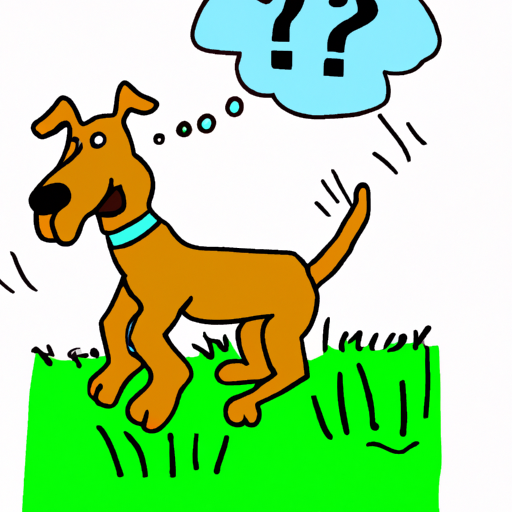Understanding Your Dog’s Behavior
You know your dog, you spend countless hours with them, you care for them, and you think you’ve mastered their every move. But just when you think you’ve got it all figured out, they do something that leaves you scratching your head. One such behavior is when your dog kicks grass after answering nature’s call. Why do they do that?
The canine world is fascinating, and understanding your dog’s behavior can help you provide the best care for them. It’s more than just a silly quirk; it’s a complex blend of instinct, communication, and even territorial marking.
The Science Behind the Kick
By kicking grass, your dog is engaging in a behavior known as “ground scratching.” This is a common behavior seen in many canine species, and it’s deeply ingrained in their DNA. But what’s the science behind it?
-
Scent Marking: Dogs have scent glands in their feet that release pheromones. When your dog kicks grass, these glands are activated, leaving a unique scent mark. This is your dog’s way of saying, “I was here.”
-
Visual Marking: Kicking the grass creates a visible mark. This is another way dogs communicate their presence to others.
| Type of Marking | Purpose |
|---|---|
| Scent Marking | To leave a unique scent |
| Visual Marking | To create a visible sign |
The Psychological Aspect
Understanding the psychological aspect of why dogs kick grass can provide a deeper insight into your pet’s behavior. Here are some points to consider:
-
Territorial Claim: When your dog kicks grass, it could be their way of claiming their territory. This is especially the case if the behavior occurs in a new or unfamiliar location.
-
Communication: Dogs are social animals, and they use various ways to communicate. Grass kicking can be a form of messaging to other dogs.
-
Instinct: Some behaviors are driven by instinct, and grass kicking is one of them. Even if your dog lives in a concrete jungle, this instinct can still show up.
How Should You Respond?
As a caregiver, you may wonder how to respond to this behavior. Here’s what you can do:
- Let Them Be: As long as the behavior isn’t causing any harm or damage, there’s no need to discourage it.
- Monitor the Behavior: Keep an eye on the frequency and intensity of the behavior. If it becomes excessive or obsessive, it might be worth discussing with a vet.
- Provide Alternatives: If the behavior becomes problematic, consider providing alternatives like toys or chew sticks.
FAQ
Q: Is grass kicking harmful to my dog?
A: No, it’s a natural behavior and typically harmless unless it becomes excessive or obsessive.
Q: My dog doesn’t kick grass, should I be concerned?
A: Not at all. Not every dog will display this behavior.
Q: Can I train my dog to stop kicking grass?
A: While it’s possible to discourage the behavior, it’s often unnecessary unless it becomes problematic.
Remember, your dog’s behavior is a window into their world. So, next time you see your furry friend kick up a storm of grass, you’ll know exactly why. You’re not just a caregiver; you’re a student of canine behavior!



